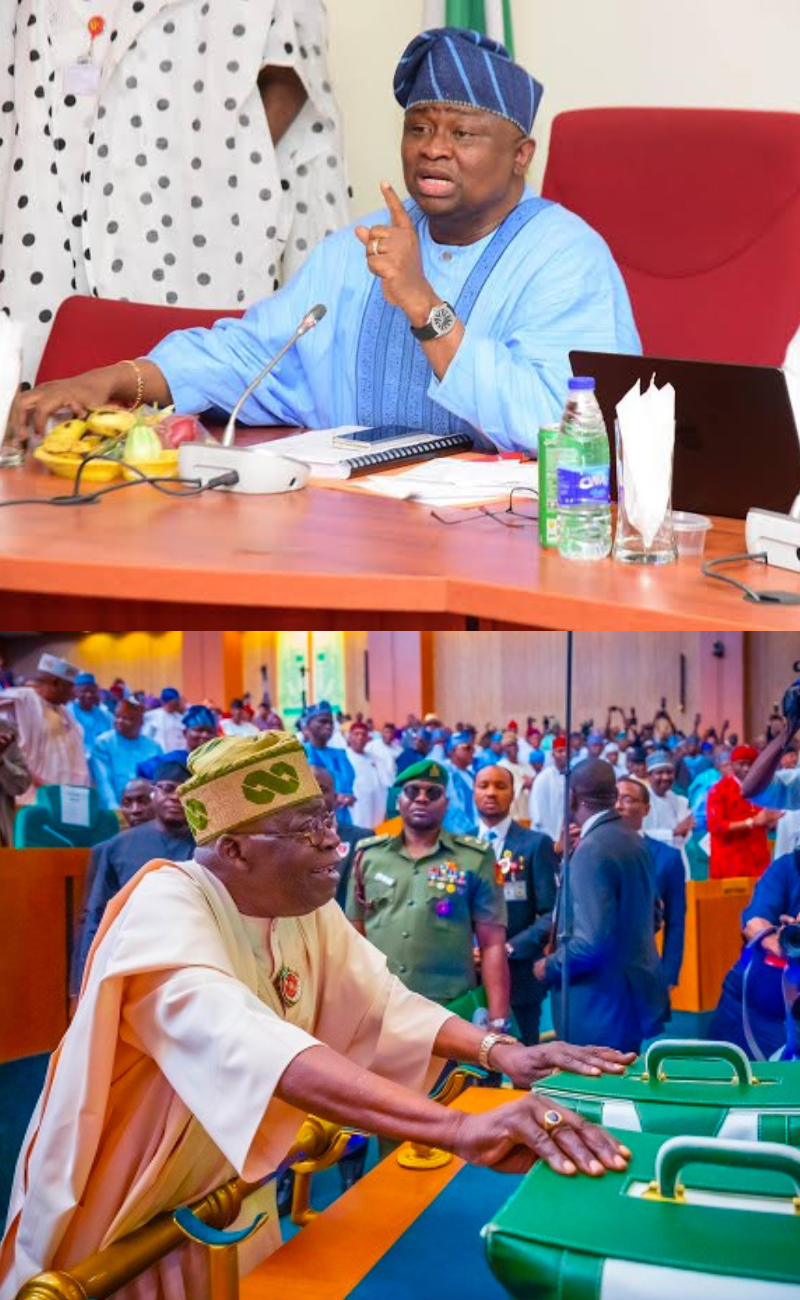The Senate proposed a 6-year single term for CBN governors and a one-year notice for the replacement of existing banknotes.

The Senate has passed for second reading a bill seeking some amendments to the Central Bank of Nigeria (CBN) Act, including a proposal to increase the Bank’s authorised capital to N1 trillion.
The bill also seeks to ensure that the Apex Bank gives a notice of at least one year to replace the existing legal tender while allowing both the old and new currency notes to serve as legal tender simultaneously for two years.
In the proposed bill, the withdrawal of the old legal tender should be carried out in phases and in a manner that does not cause any distortion to economic activities and the Bank should have sufficient new currency (not less than 70% of the old stock of currency to be withdrawn) before embarking on such a programme.
The current CBN Act, in section 4 (1), puts the authorised capital at ₦100 billion, which lawmakers said the amount had over the years been eroded by the devaluation of the naira.
The Senate also sought to amend section 8 (2) of the apex bank’s law to provide for a single non-renewal term of 6 years for the governor and the deputy governors.
These were contained in a bill titled, “Bill for an Act to Amend the Central Bank of Nigeria Act, 2007 to strengthen the Bank, and for other related matters thereto, 2024 (SB. 325),” sponsored by Senator Adetokunbo Abiru, (APC, Lagos East) and co-sponsored by 41 other Senators.
The proposed amendment sought to compel the federal government to repay the loans it received from the CBN, under Ways and Means advances, within three months from the date they are made available.
In his lead debate, Abiru said the bill, if passed into law, will further strengthen the CBN to carry out its principal objectives in line with section 2 of the Act which is to ensure monetary and price stability, issue legal tender currency in Nigeria, maintain external reserves to safeguard the international value of the legal tender currency, and promote a sound financial system in Nigeria.
READ ALSO: Reps urge CBN to maintain exchange rate of N951.94/$1
He said “The current CBN Act, empowers the CBN to grant temporary advances to the Federal Government to finance unexpected shortfall in budget revenue. The advance is not to exceed five per cent of the previous year’s actual revenue of the Federal Government and it is to be paid back at the end of the financial year in which it was granted.
“In order to firm up this provision and prevent a repeat of the recent experience in which the Bank’s Ways and Means have fueled inflation and significantly distorted economic management, the Bill proposes the following: any such direct advance to the Government should not exceed 10% of average government actual revenues during the preceding three years. For the purpose of determining government’s actual government revenue, proceeds from asset sales shall be excluded to avoid capturing revenues from exceptional items.”
“The mandate of the Central Bank of Nigeria (‘CBN’ or ‘the Bank’) is derived from the 1958 Act of Parliament as amended in 1991, 1993, 1997, 1998 and 2007. The current Act of 2007, which charges the Bank with the overall control and administration of the monetary and financial sector policies of the federal government, has not been amended for over 16 years despite growing changes to the Bank’s Balance sheet as well as challenges in monetary policy implementation occasioned by fiscal dominance and the rapidly changing financial landscape.
“The proposed amendments are therefore aimed at strengthening the Bank to discharge its primary mandate of maintaining monetary and price stability in support of government’s economic growth objectives as well as align its governance mechanisms with global best practices.
“Tenure of CBN Governor and Deputy Governors: Section 8 (2) of the CBN Act currently grants the Governor and Deputy Governor’s tenure of five years and they are eligible for re-appointment for another term not exceeding five years. The Bill proposes to amend this provision to provide a single non-renewal term of 6 years for the Governor and the Deputy Governors.
“In addition, the Bill proposes that where a vacancy is created by the death or resignation of a CBN Governor or Deputy Governor, the President can appoint an acting Governor in the interim pending the appointment of a substantive Governor or Deputy Governor. Where a substantive appointment is made, such appointment will be for a fresh term rather than serving the tenure of the previous Governor or Deputy Governor.
“Limit to Temporary Advances to the Federal Government: The current CBN Act, empowers the CBN to grant temporary advances to the Federal Government to finance unexpected shortfall in budget revenue. The advance is not to exceed five per cent of the previous year’s actual revenue of the Federal Government and it is to be paid back at the end of the financial year in which it was granted. In order to firm up this provision and prevent a repeat of the recent experience in which the Bank’s Ways and Means have fueled inflation and significantly distorted economic management, the Bill proposes the following: any such direct advance to the Government should not exceed 10% of average government actual revenues during the preceding three years. For the purpose of determining government’s actual government revenue, proceeds from asset sales shall be excluded to avoid capturing revenues from exceptional items.
“Such temporary loans should be repaid in full within three months from the date it is made available. This is consistent with global practice. The current provision which stipulates before the end of the fiscal year is prone to abuse as it creates a window for the government to obtain overdrafts from the Bank in January and wait until December to make repayment.
In order to minimize default risk, any sum which becomes outstanding at the end of the expiration of the credit period should be held against and recovered from the proportion of the Federal Government’s FAAC Receipts.
“Issuance of New Legal tender to replace existing ones: The current Act gives the Bank the power to restructure the domestic currency and issue new legal tender but has not specified a time frame within which the old currency ceases to be a legal tender. This lacuna contributed to the confusion that characterized the last currency redesign exercise and the resultant huge economic loss to the nation until the intervention of the Supreme Court. In order to prevent a repeat of this experience and consistent with global practice, the Bill proposes that before the Bank can replace an old legal tender with a new one under any restructuring, redesigning, redenomination or any similar arrangement:
“Recapitalisation of the Bank; The Bank’s current authorised capital of ₦100 billion (One Hundred Billion Naira) as stated in section 4 (1) has over the years been eroded by devaluation of the naira. The Bill proposes to amend this to provide that the paid-up capital of the Bank shall be 1 Trillion Naira and may be increased from time to time by such amount as the Government may approve either by way of transfers from the General Reserve Fund or by such other means as the Government, in consultation with the Board, may approve.



